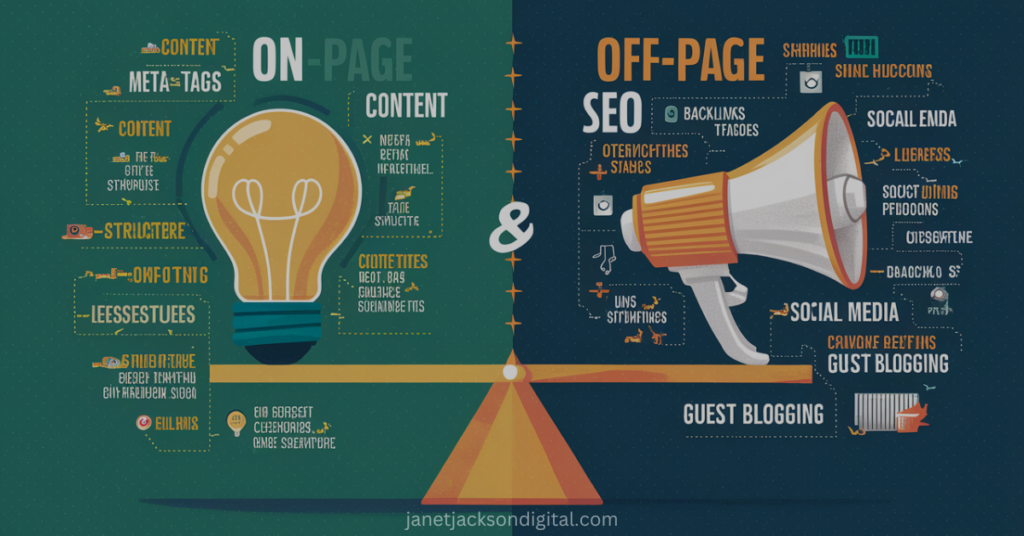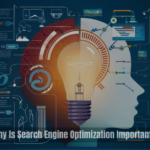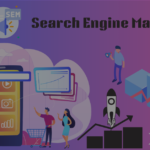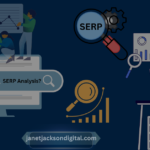Last Updated on June 23, 2025 by janetjacksondigital

Nowadays, the majority of consumers anticipate that their desired result will appear at the top of Google searches. Reaching the top of the search engine results page (SERP) using your website makes it a lot easier to draw in new clients for your company.
Janet Jackson Digital : The world’s best competitive intelligence tools Collection.
The two main types of effective SEO methods are often on-page and off-page SEO:
- On-page SEO is a term used to describe SEO techniques and factors that focus on enhancing elements of your website that you control.
- Off-page SEO refers specifically to SEO-related factors and strategies that are focused on promoting your site’s your brand on the internet.
On-page SEO is the process of creating an appealing website for users and, hence also search engines.
Off-page SEO is about creating the website’s name out there while building trust and authority your website’s content.
On-Page SEO Factors
On-page SEO refers to everything you implement to your site to increase its ranking in search results. When you think about the majority all of the “basic” parts of search engine optimization – such as keywords HTML tags, keywords, page titles, and mobile-friendly you’re thinking about on-page SEO.
This portion of SEO is about making sure that the content on your site is crawled, indexed, and recognized to search engine crawlers. But, it’s far more than the above.
On-page SEO is also a set of strategies to enhance the experience of users who visit your site. Search engines like Google will suggest the most effective websites to people searching, so making your website “delightful” for humans to visit is an important component of SEO on the web.
The following elements have an impact on a page’s SEO:
Core Web Vitals:
A part of the most recent Google ranking factors on the web, Core Web Vitals are a collection of real-world measurements that evaluate the experience a site’s users have. They evaluate important aspects like the stability of visuals ( Cumulative Layout Shift) and the level of interactivity ( First Input Delay) and load speed ( Largest Contentful Paint). Enhancing your website’s Core Web Vitals tells Google that your website is a good user experience. This Core web Vitals hub provides all the details you require on the important ranking indicators.
- Read More : Surviving the Google core update in March 2024
Pages speed Speed of a page:
(also called loading time) is a crucial aspect of on-page SEO. Google tends to rank pages with faster speeds over slower ones. Moreover, optimizing page speed may assist in getting more pages listed in Google’s search results. There are a myriad of ways to boost a site’s speed, but photos, JavaScript files, caching and compression are a good place to begin. Our complete guide to optimizing your page’s performance for search engine optimization will explain how you can improve your website for this SEO-related on-page element.
Mobile-friendly:
Simply put, mobile friendliness is the measure of how a website performs when users try to browse and use the website using an mobile device. Mobile friendly websites are able to shrink to fit on the screen of any device and still allow users to navigate the site to accomplish their objectives. They also focus on mobile user experience by providing a user-friendly design, simple and easy navigation, as well as fast pages with high speeds.
Title tags:
Title tags, sometimes referred to as “page titles”, are HTML tags that (as you’ve might have already guessed) identify the page’s title the page as well as define what the content of the page will be. For example, “On-Page vs. Off-Page SEO: What’s the Difference?” is the headline of the article. So the title tag of the page is <span class=’wordai-block rewrite-block’ data-id=’29’>Off-Page and. Off-Page SEO What’s the difference?</span> `. If you’re looking for content relevant to a searcher’s query, Google relies on the keywords that appear in the titles tags (among others) to determine whether or not a website is closely related to. Use SEO best guidelines when you’re on the internet. optimizing your title tags .
Meta Descriptions:
Meta descriptions are similar to title tags, HTML tags that aid in describing the content of a page. Although Google does utilize descriptions to determine if an article is relevant to the query Their primary SEO purpose is to get people to go to your website in search results. Our guide on making use of meta descriptions for SEO will provide the most efficient ways to utilize this SEO element on your page to increase your site’s click-through rate on search results.
Content quality:
The single most crucial element in website SEO is content. Search engines offer a variety of ways to assess the quality of content but ultimately it boils down to a simple question: A) Does it serve the user? b) Is it unique? and c)Is relevant to the user’s question? If you are able to truthfully answer “yes” to each of these questions, then your website is in a great position.
HTML headers :
HTML headers refer to HTML tags which define headlines and subheads in the content of a website. They assist your visitors learn more about your website’s content. In terms of the purpose of on-page SEO, they can help search engines to know what the contents of a page are concerned with and the way it is related to a searcher’s query. Learn to utilize headers in your SEO on-page strategy by reading the Guide to HTML Headers.
Alt text of image:
Image ” alt text” is a reference to an attribute inside the image’s HTML tag that includes an explanation of the text in the image. Alt text is utilized by assistive technologies like screen readers and browsers as a backup option when the image is not loading on a webpage. Search engines use alt text as a method to determine how relevant the image’s content is to someone’s inquiry. This is why alt text is an important SEO factor on-page for images in addition to traditional web searches.
The Top 10 Stunning Alternatives to Envato Elements for Authentic Design Assets
Internal linking
Links to different pages of your site within your own content can be beneficial as it allows visitors to locate related content that provides additional context or background. We’ve done it a few times in this post by linking to more comprehensive guides that provide important information about off-page and on-page SEO. Internal linking can also boost the SEO of your website by assisting search engines locate new content. Additionally the anchor text you choose to use for your internal links informs the search engines what they can expect from the destination site and how it is related to the content of the linked page.
Importance of On-Page SEO
In today’s world of digital on-page SEO is a key element in enhancing websites to improve ranking in search engines and enhancing the user experience overall. It is the process of enhancing various elements within your websites to ensure that they’re relevant as well as easy to search for search engine optimization. What makes SEO on-page important? Let’s explore the importance of this.
Read more : Link-Building Outreach: Tried-and-True Strategies for Effective Relationship
Out-Off-Page SEO Elements
Off-page SEO refers to a group of methods, plans, and approaches you use to make your content more visible on external websites throughout the internet. This aspect of SEO concentrates on getting your company, website and/or brand featured on a different site.
It’s likely that you’ve heard of off-page SEO as a means of constructing hyperlinks to your site. Yes, backlinks are extremely important and we’ll cover the importance of them in the following paragraphs however there’s beyond off-page SEO just linking.
A brief introduction survey of other factors off-page:
Backlinks:
Quantity and quality of the backlinks remain among the most important aspects for off-page SEO. Because of how important they are, Google has made multiple algorithmic changes to counteract link schemes and spam. Links are crucial in off-page SEO since they provide what’s referred to in the industry as ” link juice” to your website which makes it look more credible and reliable to search engines. There’s a lot of work that is involved with backlinks and we recommend our comprehensive guides to creating hyperlinks as well as reviewing the quality of your backlinks in addition to conducting an audit of your links.
Social Media:
Although a website’s rank isn’t directly affected by the amount of shares or likes it receives however. Social media remains an important tool to promote your website’s online presence. Social media helps you reach both new and existing consumers by making it possible for individuals to find and connect with your business online. Google indexes pages on the most popular social media sites. So regularly posting on social media platforms can help you manage your search engine results for your brand.
Non-linked references:
These are any time a site that is not affiliated with uses your company’s name or web site on the internet but without connecting back to the website. It’s not common, almost impossible for each mention of your website or brand to be accompanied by backlinks. If that was the case, Google is likely to find this extremely suspicious and issue an administrative penalty on your site. But, it does not mean that unlinked brand mentions do not have any value off-page SEO. They still serve as citations to your website’s authority and credibility. Additionally, mentions offer up an excellent opportunity to build brand new links.
Google My Business:
Google My Business (GMB for short) lets businesses easily and quickly provide vital details straight to Google. The information can include location or the area of service, type of business as well as contact details and hours of operation. GMB is also the method by which Google creates results for Google Local Pack along with Google Maps search results. This makes it an important off-page SEO component for any local business relying on the traffic of a specific geographical area.
Get Started with On-Page and Off-Page SEO Optimization
Be aware that a successful SEO strategy doesn’t mean deciding among on-page SEO or off-page SEO. It’s the same as trying to decide between installing tires or an engine into your vehicle. You require both in order to get where you’d like to travel.
It is true that SEO will be most successful if you have a good page-to-page SEO before you invest all of your time and energy (and not forgetting the cost). In building hyperlinks or promoting your site through social media.
The Janet Jackson Seo Marketing tools will assist you in ensuring the foundation of your website is strong by providing review of your website that is actionable, in-depth technical analysis and keywords.
With the information and insight available that you can develop the best plan to focus on both off-page. And on-page SEO in order to attract a larger public and bring more customers to your site.
What is difference between on page SEO and off page SEO
FAQs
Which is better, on-page or off-page SEO?
Together, off-page and on-page SEO raise your search engine ranks in a way that is mutually beneficial. But before concentrating too much on off-page SEO, SEO experts usually advise getting your on-page SEO act together.
What are off-page and on-page SEO activities?
On-page SEO concentrates on making your website’s content, structure, and HTML elements as good as possible; off-page SEO, also known as off-site SEO, takes into account outside variables that affect your website’s trustworthiness and visibility in search engine results pages (SERPS).
What distinguishes technical SEO from off-page and on-page SEO?
On-page SEO deals with the formatting of your website, whereas technical SEO ensures that the coding of your website is clear and efficient. One may argue that on-page SEO is concentrated on content, whereas technical SEO is more concerned with performance.
Which is better, on-page or off-page SEO?
While off-page SEO focuses on gaining visibility for a website while establishing authority and trust for your content, on-page SEO focuses on creating a website that appeals to users and, consequently, search engines.
Which is more crucial for SEO, off-page or on-page?
Because Google uses both on-page and off-page ranking factors, SEO is most effective when combined with both. However, you should probably not devote all of your attention to just one of them.
What fundamental distinction exists between off-page and on-page SEO?
Off-Page SEO enhances the authority and credibility of a website by concentrating on external elements such as social media mentions, reputable external links, and brand mentions. Improve Core Web Vitals for the best user experience, prioritize high-quality material, and match your content to search intent when it comes to on-page SEO.
Is writing for a blog on-page or off-page SEO?
Blogging is an effective off-page SEO tactic that can raise your website’s search engine ranks, boost organic traffic, and build your brand’s reputation and authority within your sector or specialty.
Conclusion
On-page SEO refers to everything you do internally or on a webpage to improve your rankings. However, anything you may optimize externally, or outside of your website, in an effort to improve your rankings, is covered by off-page SEO. In terms of off-page SEO, backlinks are arguably the most crucial element.
Keep learning
- Why Is SEO Crucial To Your Success Online?
- Group Buy Seo Tools: Boost Your Website’s Rankings
- The Best Social Media Marketing Tools to Work With in 2024

My name is Janet Jackson Seo and I work as a SEO Expert. I appreciate the process of developing an innovative approach and employing logic, particularly when it concerns future studies and SEO optimization. As an SEO expert I have known how to set up SEO campaigns fully and how to monitor their achievements.





